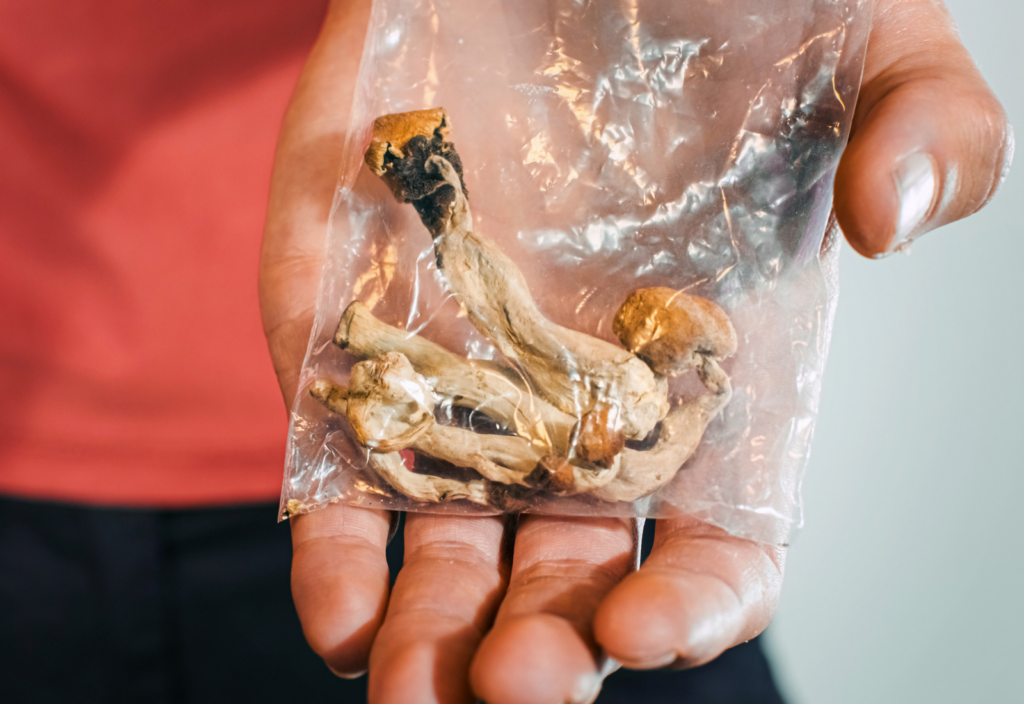The rules on Oregon psilocybin training programs, products and testing will be critical to the success of Measure 109. Last month, I advised that interested parties could look for these administrative rules sometime in May of 2022. The first known drafts, dated December 17, 2021, have been in our possession for a while, however, and I’ve made some notes. Even if none of this is published or easily accessible, I figured I would write about these drafts– they are public records after all.
This post on Oregon psilocybin training is the first in a series of three. On Monday I’ll cover products and on Tuesday we’ll do testing. Please remember that because these rules are nonfinal, things could change between now and May, or whenever the final versions are released.
Even in draft, these rules give a strong indication of the thinking and direction of Oregon Health Authority (OHA) psilocybin program architecture. The rules are also fun to read in the sense that one encounters terms novel to administrative law, e.g. “non-ordinary state of consciousness”, “non-directive facilitation” etc. Those particular examples are from the training rules sequence, beginning at draft OAR 333-333-3005. And that’s what we will cover today.
Oregon Psilocybin Training: The Big Picture
Training is a complex topic. Writing rules for psilocybin training is building something out of nothing: state-sanctioned tripsitting doesn’t exist anywhere else in the world. By extension, state-sanctioned modules for training people to tripsit are also nonexistent. Still, it’s not as if private programs haven’t been built for this. They have and others are in process. Many people are hoping to monetize training programs here in Oregon and beyond.
Big picture, the training rules concern 1) qualifications for accredited training programs and the related approvals process (note: psilocybin facilitators will NOT be trained through OHA or the state) and 2) training program curricula, which psilocybin facilitators must master to be licensed.
Oregon Psilocybin Training Program Requirements
As far as training program application requirements, those are simple. There is a $500 fee, and each training program must identify its instructors (including two “lead educators”) and their qualifications. The training company must also list a “program director” who has the authority to “confer student enrollment and program completion.” There are recordkeeping requirements and other administrative matters you might expect.
More interestingly, each training program must cover a designated curriculum, broken into nine distinct modules and covering at least 120 hours of instruction. Note that at least 25% of the core training hours must be conducted in an “in-person teaching format.” For all remote training “at least 50% shall be conveyed through online asynchronous learning.”
The nine modules include:
- Historical, Traditional and Contemporary Practices and Applications
- Cultural Equity in relation to Psilocybin Services
- Safety, Ethics, Law and Responsibilities
- Psilocybin Pharmacology, Neuroscience, and Clinical Research
- Core Facilitation Skills
- Preparation and Orientation
- Administration
- Integration
- Group Facilitation
The rules then give considerable detail on what each of these modules must include, including a required “hours” allotment for each (between 8 and 20 hours). All modules except ##2, 3 and 6 above are eligible for what the rules call “accelerated training hours.” Those hours are available for students with advanced professional credentialing. (Remember: facilitators need only proof of Oregon residency and a high school degree, or equivalent.) Even for advanced students, though, accelerated hours may not exceed 40% of the total hours requirement.
Finally, there will be a test. The rules provide that “training programs must administer a comprehensive skills-based exam and every student must receive a passing score, established by the training program, as a condition of completing the training program.” The rules are clear that this criterion goes further than the exam required by Measure 109, Section 31, which provided only that the OHA “shall offer an examination for applicants for licenses to facilitate services at least twice a year.”
Oregon Psilocybin Training and Measure 109
Overall, these draft rules present an interesting architecture, considering that Measure 109 simply directed the Oregon Psilocybin Advisory Board to “make recommendations… on the education and training that a psilocybin services facilitator must provide.” It then directed the Board to give “particular consideration” to various topics, which the draft rules appear to do based on the modules set forth above.
The draft rules also expand on some of the Measure 109 baseline. One example of this is the above-mentioned testing requirements. Another is the availability of online training. Measure 109 simply left it up to the Board whether “such education and training should be available through online resources.” Anyone interested in the policy discussions behind these decisions should review the Licensing Committee minutes, available on the OHA’s excellent Oregon Psilocybin Services website.
Stay tuned for Monday’s post, where I’ll cover the draft rules on psilocybin products. After wrapping up this series, I’ll resume the series on business issues for Oregon psilocybin program participants. You can view the first three posts in that series here, here and here.

























